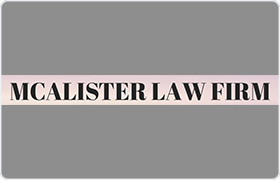Biloxi Juvenile Law Lawyer, Mississippi
Sponsored Law Firm
-
 x
x

Click For More Info:
-
McAlister Law Firm, LLC
419 Security Square Gulfport, MS 39507» view mapCriminal Defense Law Your Gulf Coast Attorney
An Attorney with Nineteen years of court room experience. Licensed in the States of Mississippi and Alabama.
228-265-5190
Not enough matches for Biloxi Juvenile Law lawyer.
Below are all Biloxi Criminal lawyers.
W. Fred Hornsby
✓ VERIFIEDW. F. "Dub" Hornsby, III, is a lifetime resident of Biloxi. A graduate of Mercy Cross High School, Mississippi State University and the University of ... (more)
Carolyn Ann McAlister
✓ VERIFIEDCarolyn McAlister is a practicing attorney in the state of Mississippi. She received her J.D. from University of Mississippi. She has been practicing... (more)
Rob Curtis
✓ VERIFIEDRob Curtis is a practicing lawyer serving Gulfport, MS and the surrounding area.
 Carolyn McAlister Gulfport, MS
Carolyn McAlister Gulfport, MS



